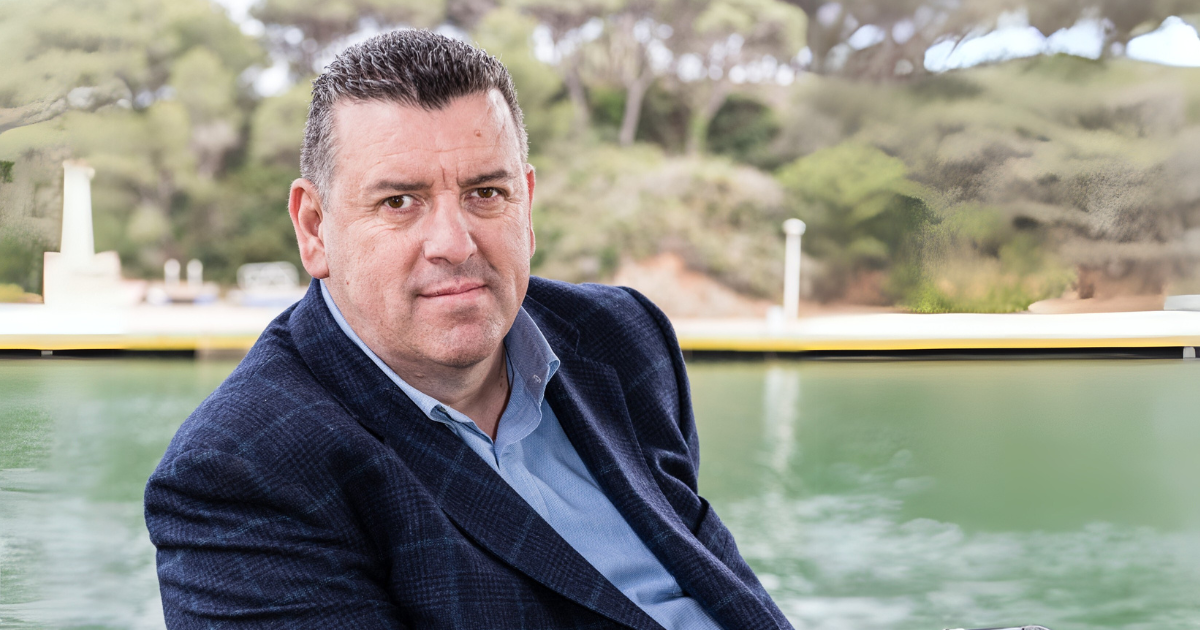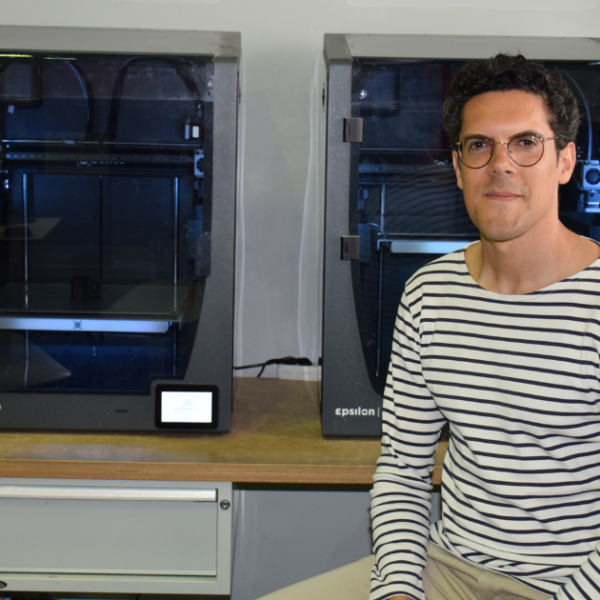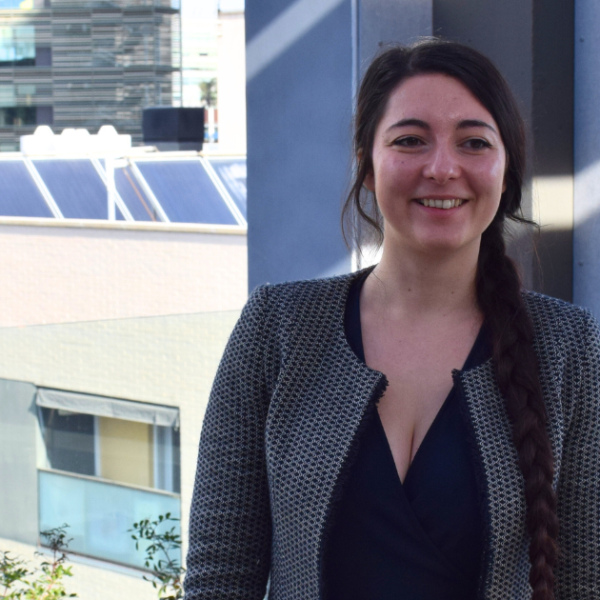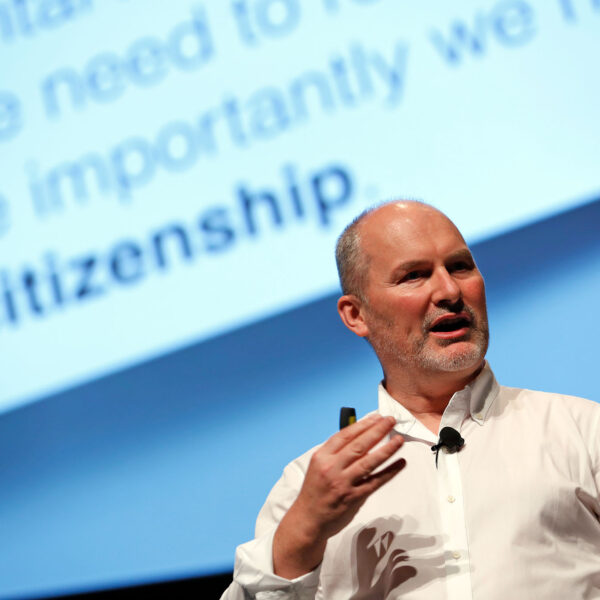Josep Maria Solé: “To innovate, you need to dare, and daring must embrace the risk of making mistakes.”

Josep Maria Solé: “To innovate, you need to dare, and daring must embrace the risk of making mistakes.”

Josep Maria Solé is a lawyer and the director of the Support-Girona Foundation. He also serves as a trustee and president of the Social Council of the Guttmann Institute Foundation, vice president of the DRISSA Foundation, and a member of the board of the European Association of Service Providers for Persons with Disabilities (EASPD), among other roles. Since 2024, he has been president of the iSocial Foundation, succeeding Montse Cervera. We spoke with him to share his vision for the foundation and the need for innovation in the social sector
What does it mean to you to take on the presidency of a foundation whose mission is to promote social innovation?
As I see it, the iSocial Foundation has always been a cooperative project of the organizations that make it up. Taking on the presidency is simply fulfilling a role that someone has to take on. My goal as president is to maximize the participation of the talent present in all the entities that form part of iSocial’s ecosystem. But I would also like to reach out to other organizations, to parts of the social sector that we have not yet been able to engage. Only through alliances will we grow. Having talent and great ideas is not enough; alliances are what enable ideas to take shape and become reality. In this sense, a single person can achieve little unless they can bring together many wills. I believe this is the main purpose of the role I now assume.
Why is it important to innovate in the social sector?
It is especially important to foster an innovative mindset and ensure that innovation reaches both direct intervention with the individuals and groups in need—where the social sector realizes its mission and values—and the ways in which we organize the mechanisms that enable this intervention. These mechanisms need to be rethought to have a more significant and transformative impact on people’s lives and society as a whole.
What do you mean by introducing innovation in the organization?
This is an area where we lag quite behind other sectors, such as healthcare, where management is given intrinsic value, and no one takes on management roles solely based on practice. The healthcare sector is acutely aware that it is the custodian of significant social efforts—in terms of budgets, resources, etc.—and therefore must be managed with sound management principles. In the social sector, however, many people still end up in leadership or strategic roles without planning for it or receiving the necessary training to fulfill these roles effectively.
We need innovation to become part of how organizations are managed. This does not mean, of course, abandoning the sector’s social values. In other sectors, it’s less complicated; when a solution that adds value is found, it is shared and presented at conferences, for example. In our field, this tradition is weaker, and much of the activity revolves around revisiting the same problems. There’s a lack of real debate on how to advance and improve. Innovation doesn’t always mean disruption, though it sometimes does.
Looking back, what are the main achievements of the iSocial Foundation in its six years of existence?
First and foremost, consolidating its existence and building a minimal organizational structure that can now take on more ambitious projects. In the beginning, all of us involved invested resources and ideas, but we primarily relied on the human resource of one of the founders, the current director, Toni Codina. Today, Toni Codina is joined by other talented individuals, which allows us to realize more projects. As a result, ideas that emerge within the iSocial ecosystem now have much greater potential to be implemented, tested, and eventually scaled. This seemed like a distant goal at the beginning.
What role does the iSocial Foundation play within the social innovation ecosystem in Catalonia and Europe?
We are just one part of the ecosystem; we cannot claim to have arrived and transformed the sector’s perspective. However, I do think we represent a relatively unique piece. There aren’t many organizations where such a wide array of independent intervention organizations come together without being structured as a sector or federation, or depending on an administration or government. The entities involved in iSocial participate voluntarily, and this freedom and autonomy in shaping the foundation’s action lines are incredibly valuable.
That said, as I mentioned earlier, other players exist, and perhaps the next step is to work with them and bring them into the fold to create an ecosystem that permeates the entire sector and improves how we operate.
How do you assess the current state of the social sector?
We are in a challenging moment. Europe, and the world at large, are heading toward a complex geopolitical landscape where some of the values that have historically inspired social policies—especially in Europe—are being questioned. While this isn’t always explicitly acknowledged, some of the proposals being presented to and voted on by the public, sometimes with significant support, lack the solidarity and cohesion the social sector requires to support those in need. The ideas gaining ground today are not always aligned with the vision of an inclusive society where everyone can participate without feeling excluded. There’s a growing individualistic trend, born of a misunderstood libealism, that dehumanizes the weak—those without the resources to compete. From the social sector, we rmust act as a counterweight to prevent this perspective from prevailing. We need to prioritize the collective good, society as a whole, and especially those most marginalized.
Europe should be a stronghold for these principles. Many other regions have not embraced the welfare state or the idea of rebalancing society through contributions from the more privileged to reduce the disparities faced by the less fortunate. The social sector must innovate to demonstrate that it can operate effectively, efficiently manage resources, and simultaneously drive transformation and create value for society. This is not easy because it requires a clear purpose behind every action. Too often, the purpose is tactical rather than strategic, and this is the perspective we now need.
What other challenges does the third social sector face?
The social sector will need to adapt to an inevitable social change: the progressive increase of the elderly population—some of whom will require support—within society as a whole. This is an unavoidable factor and can elicit various responses, some of which, of course, are not aligned with the interests of the social sector. One such response is the complete commodification of the support and care sector, focusing solely on cost-efficiency and the bare minimum of needs coverage. The social sector must champion human rights values that ensure these supports and care services are inclusive and involve the participation of those who receive them, leaving no one behind or relegating those with fewer resources to second-class citizenship. In this regard, we face a challenge because the commercial sector tends to lower prices and industrialize its products, saying, “We’ll do it cheaper.” I support industrializing processes that lack added value, such as bureaucracy, but only to the extent that it allows us to allocate more resources to humanize services, enabling a stronger focus on human relationships, which ultimately is what improves everyone’s quality of life. I believe this should be the goal of the social sector.
Many of the projects at the iSocial Foundation have been driven by circumstancial funding, such as Next Generation funds, which were established in response to the crisis caused by the COVID-19 pandemic. Beyond this funding, what is the Foundation’s main challenge in securing financing to continue new projects?
The challenge lies in raising awareness among society at large, but especially within the political sector and governments, about the need for the social sector to undergo a complete rethinking, as it currently does not meet human rights standards. For example, a significant part of the social sector still provides support based on institutionalization—offering the same service to a group of people regardless of their specific individual needs. Much of the spending on residential care or day services for groups such as the elderly or people with disabilities is still rooted in this approach. We fail to realize that this model, from a strictly human rights perspective, is outdated. Each person should be offered opportunities to live their life fully, independently, and as part of the community while receiving the individual support they need, not merely collective solutions. This transformation has not even been a priority in the use of funds like the Next Generation funds, which have often reinforced institutional perspectives.
In what way?
In many cases, for instance, they have been used to build residential spaces, which can be an option but unfortunately often become the only option for many individuals. I hope that this line of thought on supporting full lives continues to drive innovation and that iSocial has a space to introduce new ideas and projects. I can’t conceive of a future where, even if the Next Generation funding ends or new fiscal austerity policies emerge, we do not continue to advance the ideas of individualization and personalization of supports and care, the right to choose how one wants to live, and, if one wishes to remain in their usual environment, ensuring the delivery of adequate and sufficient support mechanisms. We are still far from being able to offer this, and the integration of new technologies to make some of these processes more efficient is still in its infancy. We also need to rethink the organization of resources. When we acquire more resources, we often replicate the same models we already had instead of considering whether everything should be organized differently.
What role should public institutions play in relation to social innovation?
First and foremost, they should stop creating barriers, and second, they should promote it. They should seek evidence of what works, and to have such evidence, things need to be tested. Today, there is an exaggerated fear of testing. Without trying new approaches, we cannot rule out options that are not suitable. Often, we stick with traditional methods because they are familiar, and we hesitate to try new proposals for intervention, resource organization, or community energy mobilization because these alternatives, not having been tested, lack evidence and therefore do not receive public funding. To innovate, one must dare to try, and daring must include accepting the risk of making mistakes. The current trend is the opposite; we often amplify the errors of things that worked or seemed to work in the past, even if they have not been revalidated in a modern and substantiated way. These methods may no longer work, yet we continue to allocate public resources to them. Without a spark of curiosity and courage to take risks, we will keep doing the same things over and over, and there is no need to innovate if that is the case.
How can we foster productive dialogue among the various stakeholders in social innovation?
By establishing multiple mechanisms for collaboration among all the system’s stakeholders. It should be much easier for individuals to express their feelings about the social interventions they receive: what they find lacking, what works for them, and what doesn’t. Often, these individuals are not taken into account, particularly if they struggle to articulate what they want or dislike. Therefore, support in decision-making or communication of their own will is an area where innovation is undoubtedly needed. It also often happens that the people being supported cannot contribute valuable feedback on potential alternatives because they have not been offered those alternatives and are unaware of them.
Additionally, all stakeholders must be involved, including the vast workforce entering the social sector, which is often highly precarious. The perspective must also be broadened to include all kinds of organizations in a transversal manner, without any preconceived notions—except for one fundamental principle: respect for human rights. Any entity advocating positions that are not aligned with a human rights perspective should be gradually excluded from the system.
What do you think is the main obstacle to social innovation in the third sector, and how can we overcome it?
The obstacle is fear, and the solution lies in courage: the courage to try different approaches and perspectives. Courage might mean genuinely supporting individuals’ autonomy rather than acting as the great overseers of risk prevention. It means letting people make their own decisions and supporting them in that process without judgment, even if their choices are not ones we would make ourselves. Currently, the system tends to prevent individuals from realizing decisions we disagree with. This happens across the board—from the elderly to people with disabilities, to those with mental health issues, and beyond. We have a strong aversion to risk, both in interventions and in the testing and trialing of innovative policies. To determine if these policies work, we need a degree of bravery, and this ultimately comes down to attitude.
Entrevistes





